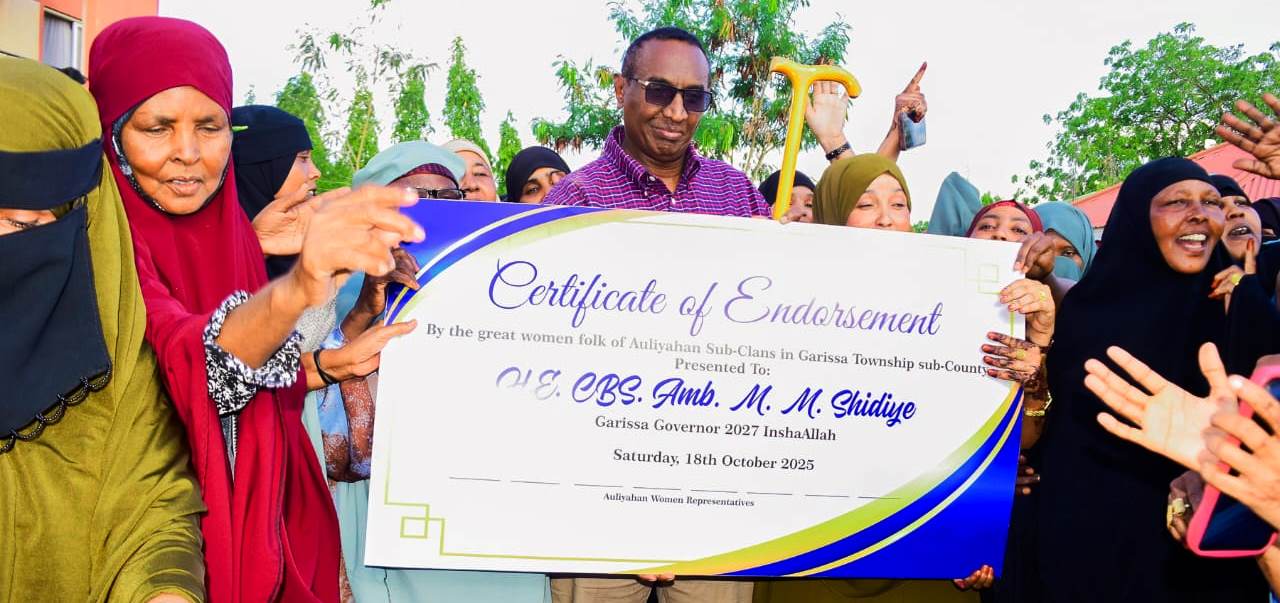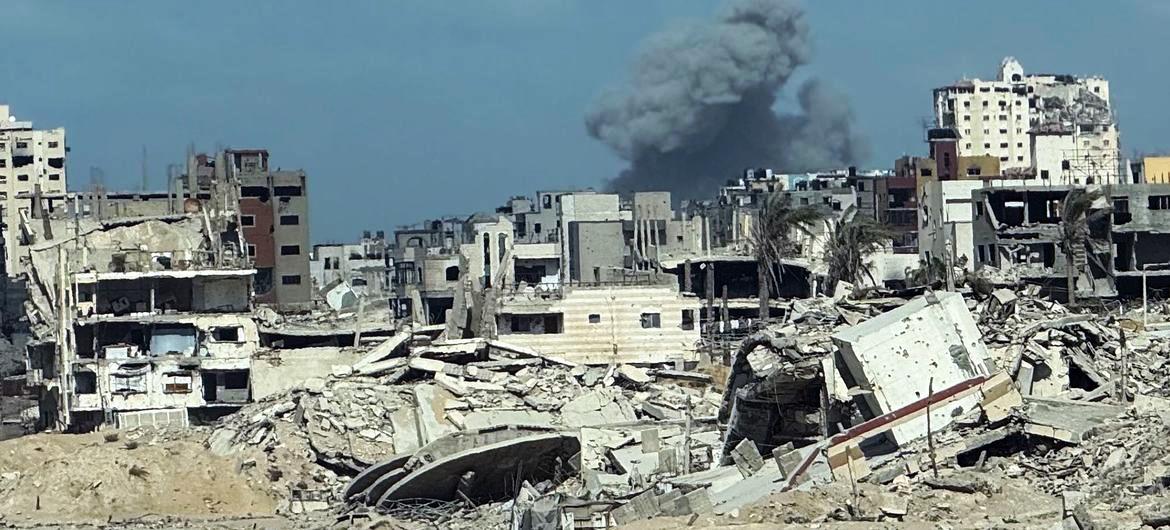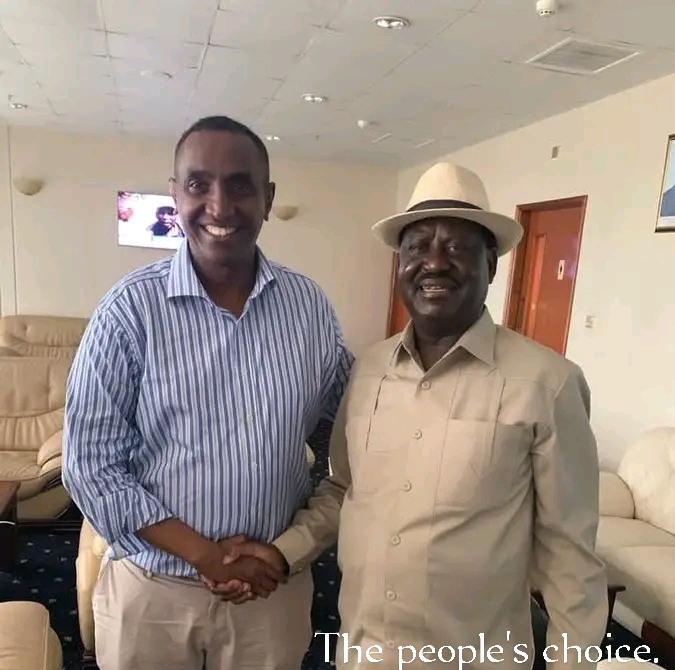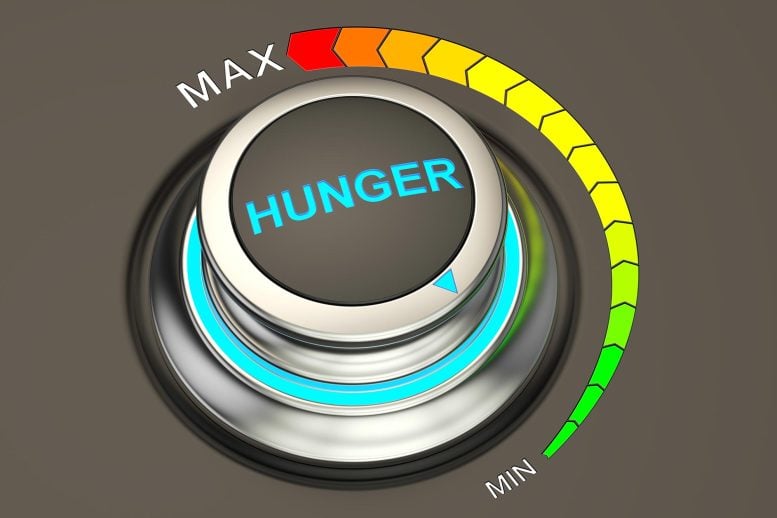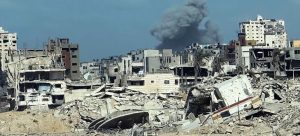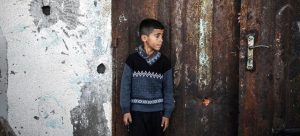Smoke rises from a bombed building in Gaza City. PHOTO/UN News.
By PATRICK MAYOYO
In one of the most powerful and unflinching addresses from a senior UN official in recent memory, Filippo Grandi, the outgoing United Nations High Commissioner for Refugees, laid bare a damning truth: the laws of war; painstakingly built to protect civilians and uphold humanity; are being deliberately dismantled. And yet, the world continues to act as if it is powerless.
We are not.
In his final speech to the UNHCR Executive Committee in Geneva, Grandi condemned, without ambiguity, the ongoing atrocities in Gaza, the occupied West Bank, Ukraine, Sudan, and Myanmar. These are not isolated violations. They are emblematic of a global collapse in respect for international humanitarian law, committed with shocking impunity by both state and non-state actors.
“People killed while waiting in line to receive food. Civilians massacred in camps where they fled for safety. Hospitals and schools destroyed. A record number of aid workers killed,” Grandi said.
These words are not abstract. They are a precise reflection of what we are witnessing today in Gaza, where the Israeli military continues its devastating bombardment, laying siege to a defenceless population.
Families are being erased in an instant. Hospitals are turned into morgues. Refugee camps; meant to be sanctuaries; have become mass graves. In the West Bank, settler violence intensifies, emboldened by political cover and state silence.
In Ukraine, Russia’s illegal invasion rages on, targeting critical infrastructure and committing war crimes that the international community has documented but failed to halt. In Sudan and Myanmar, forgotten conflicts fester, leaving civilians at the mercy of armed factions, their suffering made invisible by geopolitical disinterest.
Grandi’s message was clear: this is not war as failure; it is war by design, in which the norms that once constrained the worst of human violence are now cast aside in pursuit of military and political goals.
“Let there be no mistake: the daily repetition of atrocities is intended to numb our conscience. To make us feel powerless,” he warned.
And that is exactly what is happening. The international community is not powerless, it is paralysed. Paralysed by geopolitical alliances, by fear of consequence, by self-interest, and by a collective loss of moral urgency.
Worse still, as the world watches atrocities unfold in real time, governments; particularly in Europe and North America, are retreating from their legal and moral obligations to protect those fleeing these very horrors.

People living in areas recently liberated by Ukrainian forces receive aid.PHOTO/ Artur Ulianytskyi /UNHCR.
Refugees are vilified. Borders are militarised. The 1951 Refugee Convention, once a symbol of post-war resolve to prevent future human suffering, is now under attack. Some governments speak openly of scrapping or rewriting it to suit domestic politics.
Grandi raised alarm about the growing use of deportations and asylum deterrence strategies that clearly breach international law; not only in the United States, but increasingly in Europe, where deterrence is cloaked in bureaucratic language, but often amounts to refoulement by another name.
This retreat comes at a time when the number of forcibly displaced people has soared to 122 million; nearly double what it was just a decade ago.
Yet humanitarian funding is drying up. Aid workers are being killed in record numbers. Humanitarian law is not only under strain, it is being targeted.
Grandi’s speech, while sombre, was ultimately a call to action. A reminder that the tools to hold perpetrators accountable still exist; through the International Criminal Court, through sanctions, through arms embargoes, and through diplomatic pressure. What is missing is the political courage to use them.
The world must now choose.
Will it continue to stand idle as Gaza is razed to the ground? Will it tolerate the obliteration of Ukraine’s cities under Russia’s bombs? Will it keep turning away as Sudan burns and the military junta in Myanmar strangles an entire nation?
To be neutral in the face of mass atrocities is not impartiality; it is complicity.
The silence of powerful governments; those with influence, leverage, and the capacity to act, is not due to lack of options, but a lack of will. The daily horrors are being met not with decisive global response, but with rhetorical platitudes and diplomatic deflections.
It is time to reclaim the very idea of an “international community.” Not as an empty phrase, but as a collective of states and institutions with shared responsibilities, to uphold law, to protect the vulnerable, and to stand against the machinery of war and oppression.
The question is not whether we are powerless. The question is whether we are prepared to act.
Let this be the moment we stop pretending that inaction is neutrality. That passivity is peace. Let this be the moment we confront the truth, and rise, finally, to meet it.
